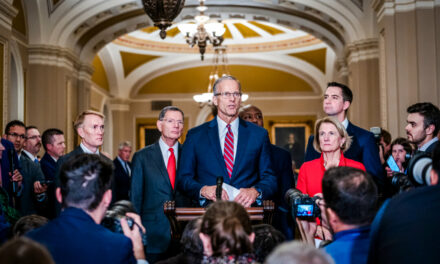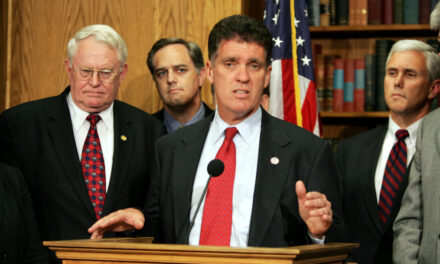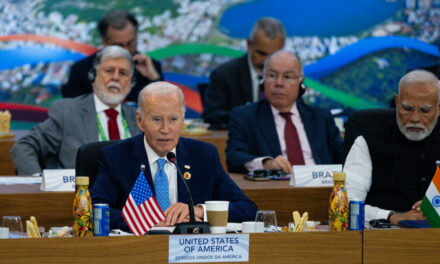We support our Publishers and Content Creators. You can view this story on their website by CLICKING HERE.
The Israeli prime minister enjoyed a close relationship with Donald Trump during his first term as U.S. president.
Israeli Prime Minister Benjamin Netanyahu said he has spoken with President-elect Donald Trump multiple times since he won.
“We see eye-to-eye on the Iranian threat in all its aspects, and on the dangers they reflect. We also see the great opportunities facing Israel, in the area of peace and its expansion, and in other areas,” he continued.
“We will never capitulate to anti-Semitism or terrorism. We will continue to defend our state and our citizens in every arena, against any threat, especially the Iranian threat,” he said.
This comes amid Israel’s fights against the Iran-backed terrorist groups Hamas and Hezbollah since Hamas launched an air, land, and sea assault on Israel on Oct. 7, 2023—the largest single-day massacre of Jews since the Holocaust.
Netanyahu enjoyed a close relationship with Trump during his first term as president.
Trump relocated the U.S. embassy in Israel from Tel Aviv to Jerusalem, recognized Israel’s sovereignty over the Golan Heights, eliminated Iranian Gen. Qassem Soleimani, and brokered peace deals between Israel and the United Arab Emirates, Bahrain, Morocco, and Sudan called the Abraham Accords.
During the election campaign, Trump laid out a pro-Israel vision and has said he would work toward ending the Israel–Hamas war if elected.
“Get it over with and let’s get back to peace and stop killing people,” he told conservative radio host Hugh Hewitt in April.
“You’ve got to get it over with, and you have to get back to normalcy,” he said. “And I’m not sure that I’m loving the way they’re doing it, because you’ve got to have victory. You have to have a victory, and it’s taking a long time.”
Trump also pledged to deport those on college and university campuses who are on a student visa and express support for Hamas. He also vowed to end federal funding to campuses that fail to deal with anti-Semitism experienced by Jewish and pro-Israel students at institutions such as Columbia University.

 Conservative
Conservative  Search
Search Trending
Trending Current News
Current News 







